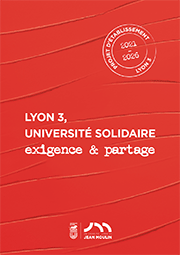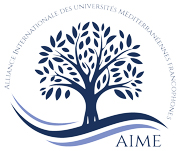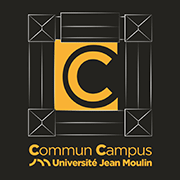AccueilRechercheProgrammes et productions scientifiquesThèsesThèses soutenuesThèses soutenues - 2006-2021Thèses soutenues - 2014
-
Partager cette page
- Recherche,
PENG Lei
Rock en Chine : contestation et consommation depuis les années 1980.
Thèse en Etudes transculturelles soutenue le 2 juillet 2014.
Cette thèse présente le Rock comme un acteur social qui représente et traduit la société chinoise prise dans la transition radicale et structurelle, d’une société considérée comme ? ex-socialiste ? vers une société de consommation et spectacle depuis les années 1980. Par ses propres transformations, ses tentatives contestataires et ses récupérations par la consommation, le Yaogun se réapproprie des schèmes, des images et des notions hérités à la fois du Mythe du Rock daté d'un demi siècle, et de ? l'Occident ? dont il réinterprète le sens originel. Pour ce faire, il sollicite inévitablement des éléments ? propres ? à la Chine - gestuel ou symbolique – qui pourrait amener à la revendication (ou non) d'une spécificité culturelle propre. Avec cette analyse, nous avons tenté d’une part de démontrer la complexité et les contradictions voilées derrière l'apparence homogène de la production de cette société du spectacle et de consommation qu’est la Chine actuelle, et d’autre part de démystifier la circulation hégémonique sur le plan des connaissances scientifiques du monde actuel.
Ce travail est le fruit d’une réflexion alimentée par deux parcours parallèles et complémentaires en ?tudes sur la Chine contemporaine et ? Cultural Studies ?, s’inspirant des différentes approches théoriques transdiciplinaire dans les domaines des sciences sociales et humaines. Il traite la question des relations entre la musique populaire, le Rock, le pouvoir politique et économique ainsi que la vie quotidienne dans le monde chinois contemporain. Enfin ce questionnement dit ? local ? a par la suite suscité une réflexion critique sur la réalité dominant le monde actuel : ? la mondialisation marchande ?.
Born at the same time as the “30 years of China’s Reform and Opening" political discourse, Rock music in China (Yaogun) at its outset is often understood as an ideological weapon with a somewhat “revolutionary” touch to it against the Communist orthodox principles. This is mainly due to some values known as part of the Rock Myth, such as individual freedom, social equality and democracy.
However, since the 1980s, there has been a significant transformation in the People's Republic of China (PRC): the shift to a free-market economy and the opening of the country to outside influence have led to the resurgence of a relevant social and cultural diversity. In the meantime, the new ideologies, technologies and mode of economy unavoidably brought about the commodification of the so-called “Chinese Culture” as part of the modern Chinese “Nation-State” construction, both at the level of the authority’s cultural policy and of the collective social imaginary, including the commodification of the so-called “Chinese Rock” or Yaogun. After one decade of development in the 1990s, generally speaking, China’s Rock or “underground” turned out to stay away from politics. It became hip, professionally organized, commercial and partly moving “overground” (not about revolution, but about everyday life). Similarly to other forms of art and cultural production in contemporary China, Rock also engaged in a complex and creative relationship with the PRC’s revolutionary heritage. From the late 1980s onwards, Yaogun has developed from being a rebelling voice in opposition to the ideology of the Chinese authorities to representing a subject of commodification by different agencies in sharing the same signs of the PRC’s revolutionary heritage.
This dissertation attempts to shed some light on the complexities and contradictions involved in the tremendous social and cultural transformations of post-socialist China through the rock music scene. It brings into play the sociology of Rock music, Cultural Studies, together with the production and spreading of the culture and ideology of contemporary Chinese society.
Mots-Clés : Mythe du Rock, Yaogun, transition sociétale chinoise, spectacle, consommation
Keywords : Rock Myth, Yaogun, Chinese social transformation, Society of the spectacle, Consumption
Directeur de thèse : Gregory LEE
Membres du jury :
Patrick DOAN, Professeur des universités, Université Paul-Valéry Montpellier III
Siyan JIN, Professeur des universités, Université d’Artois
Paloma OTAOLA GONZALEZ, Professeur des universités, Université Jean Moulin Lyon 3
Pierre DELORME, Professeur d’enseignement artistique, ENMDAD
Gregory LEE, Professeur des universités, Université Jean Moulin Lyon 3
Président du jury : Paloma OTAOLA GONZALEZ
Mention : Très honorable avec les félicitations
Equipe d'accueil : IETT







